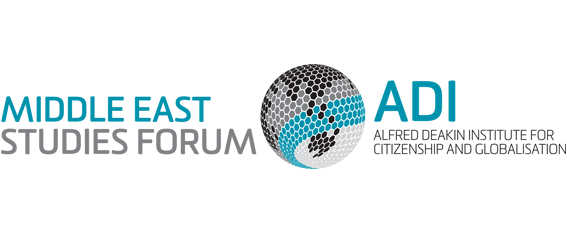
With a theme of ‘Trump and the Middle East’, the conference brought together a diverse range of Australian and international scholars and researchers to discuss and debate a range of topics relevant to the contemporary Middle East.
UNESCO Chair and Alfred Deakin Institute directory Professor Fethi Mansouri opened the conference with his keynote address outlining the democratic challenges facing the post-Arab Spring Middle East.
Thereafter conference guests on Day One attended panels addressing a range of pertinent issues in the Middle East including the role non-state actors in regional conflicts, US foreign policy, shifting geopolitical dynamics in the Gulf and the intractable Arab-Israeli conflict. Notable presentations included Professor Sarah Phillips (ANU) examining of Trump’s air wars, Professor David Romano (Missouri State University) on Kurdish forces in Iraq and Syria and Anas Iqtait’s examination of Palestine’s response to Trump’s Jerusalem decision.
Day One proceeded with Professor Anita Weiss (University of Oregon) presenting a keynote address to launch the South Asia stream of the conference, examining ‘Violent Religious Extremism in South Asia’. The three panels delivered on this increasingly important topic represent a new direction for MESF.
Day Two featured panels examining the specifics of the international relations of the Middle East, the ongoing turmoil of Syrian civil war, identity politics in Iran and Afghanistan, tensions between political transformation and stagnation in Lebanon and Iraq and the situation of Kurds and other minorities in a shifting geopolitical picture. Standout papers included Adel Abdul Ghafar’s (Brookings Institution) discussion of EU-Egypt relations, Niamatullah Ibrahimi (Deakin University) on Sunni Hazaras in Afghanistan and Yasmin Chilmeran (Monash University) discussing women’s civil society organisations in Iraq.
The conference also hosted the launch for Anthony Bubalo’s (Nous Group) new Penguin/Lowy Institute book, Remaking the Middle East. In conversation with Dr Susan Carland (Monash University), Anthony outlined the ‘green shoots’ that may portend positive change in the Middle East.
Underlining MESF’s role in fostering and encouraging further research and researchers in the Middle East, the conference included a full-day PhD Workshop for post-graduate researchers. Sessions highlighted a range of survival tips, research techniques and career opportunities from recent graduates as well as long-standing academics.
An enthusiastic group of conference delegates also participated in the conference dinner on October 30 at local Persian restaurant Agahjoon. This was an opportunity to continue discussions and cement friendships in an informal and convivial setting.

